Infrastructure
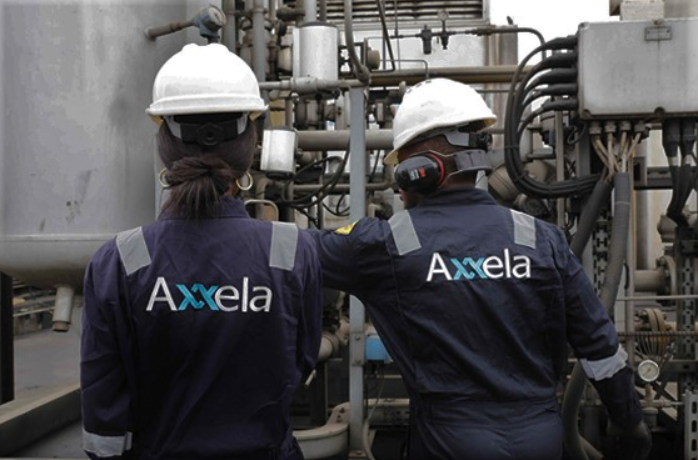
Axxela’s new gas plant to expand Nigeria’s gas infrastructure following bond success
Axxela Limited, a leading African gas and power company owned by Helios Investment Partners and Sojitz of Japan, has announced a Final Investment Decision to develop a 50 million standard cubic feet per day (MMscf/d) gas processing plant in Delta State, as it pushes towards sustainable energy solutions in Nigeria. This decision is bolstered by Axxela’s successful ₦16.4 billion bond issuance earlier this month, which was oversubscribed by 109 percent. The announcement comes as Axxela continues to expand its footprint in the energy sector, following last year’s agreement with BUA Group, one of Africa’s largest conglomerates, and CIMC ENRIC, a global leader in the energy equipment industry, to build a 700-ton-per-day mini liquefied natural gas (LNG) project. The new gas processing plant, expected to begin operations by the end of 2024, will start with a 12 MMscf/d modular unit and is designed for rapid expansion, with the potential to increase the plant’s output to 50 MMscf/d within 18 months. It is a key part of Axxela’s strategy to support the Nigerian government’s Decade of Gas initiative and to enhance domestic gas utilization. Strategically located in OML 152, the gas processing plant is expected to serve as a central processing hub for surrounding oil & gas operators, with the potential to transform gas flaring into a valuable economic resource, and significantly reduce CO2 emissions. “We are positioning to develop requisite infrastructure for natural gas processing and last mile distribution that creates market access for at least 20% of Nigeria’s gas demand,” Axxela’s Director of Business Development, Franklin Umole, said in a company statement. “Over the past two decades, we have been at the forefront of natural gas advocacy, and this project is a further reaffirmation of our dedication to gas infrastructure development and our vision to deliver innovative energy solutions across Nigeria and Africa.’’ In preparation for the project, Axxela has secured a long-term feedstock supply agreement with a leading local upstream company and established equipment supply arrangements with top-tier Original Equipment Manufacturers (OEMs). Upon completion, the processed gas will support various market segments, including Compressed Natural Gas (CNG) for vehicles, industrial feedstock, and decentralized power solutions, marking a significant step towards energy security and economic growth in Nigeria. Boost from successful bond issuance In a related financial achievement, Axxela recently raised ₦16.4 billion in an oversubscribed bond issuance, despite challenging economic conditions marked by rising interest rates and limited market liquidity. The funds will be instrumental in realizing the gas plant project. “This is a significant indicator of increasing investor confidence in our company’s reputation, brand, and performance,” CEO at Axxela Bolaji Osunsanya said. “The bond proceeds will support the development of our growth projects, signifying the importance of local and international capital markets in the development of critical infrastructure.” With the FID and successful bond issuance, Axxela looks to advance Nigeria’s gas infrastructure, support the energy transition, and meet the increasing demand for cleaner energy solutions.
Read more »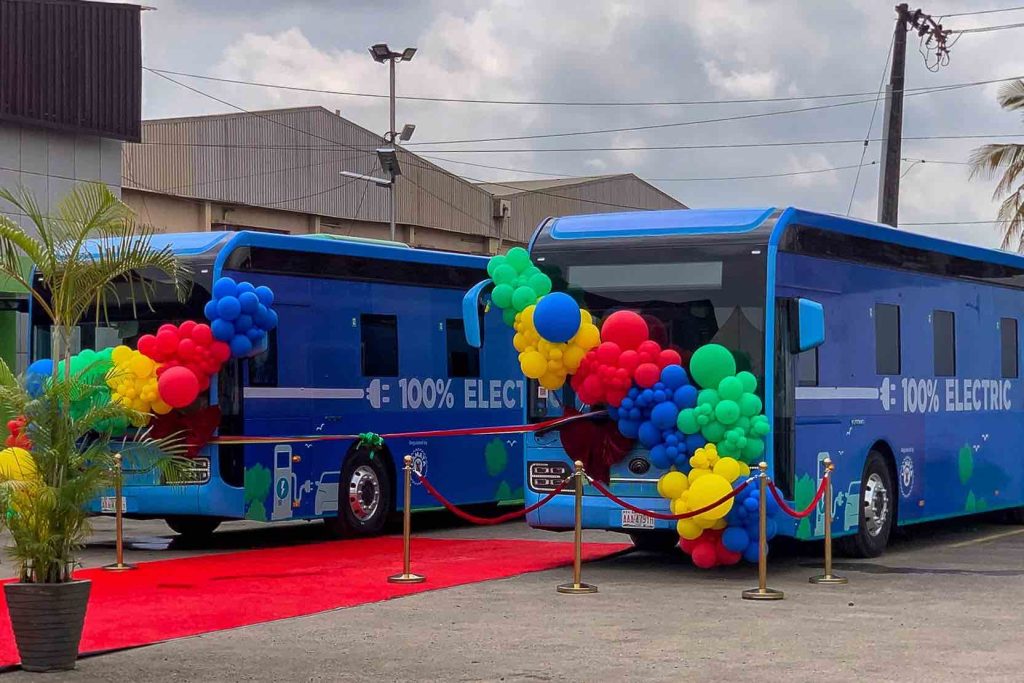
Lagos launches first electric buses in Nigeria
Lagos has officially launched the pilot programme for the implementation of its electric vehicle (EV) mass transit buses in the Nigerian commercial hub, as it pushes to become a modern-state with investments in green and modern transports. The Lagos Metropolitan Area Transport Authority (LAMATA) is partnering with Oando Clean Energy Limited (OECL) to launch the proof-of-concept with two electric buses that will ply the Bus Rapid Transport (BRT) lanes in the state. The mass transit bus, equipped with air conditioning and WIFI, comes with a capacity of 80 passengers for both seating and standing commuters. OECL has taken delivery of some charging stations and spare parts. OECL, a subsidiary of the Nigerian multinational oil company Oando, is teaming up with China’s bus maker Yutong to put 12,000 electric buses on Nigerian roads over the next seven years. The partnership between Oando and Yutong also envisages the construction of a local assembly plant for the electric buses to boost indigenous capacity. Partnerships for sustainable public transport “This is a pivotal moment for Lagos State and the country at large,” CEO at OCEL, Ainojie Irune, said in a statement. “The development of a sustainable transport ecosystem is much more than the deployment of electric vehicles; it’s about reducing the carbon footprint of the seven million public transport commuters and positively impacting the socio-economic indices surrounding transportation. For us at OCEL, Lagos State is only the beginning, we look forward to replicating this model nationwide through strategic partnerships across the public and private sectors.” Lagos State, Africa’s largest city with roughly 30 million people, is expected to save some $2.6 billion in fuel and maintenance costs, as it transits from the current combustion mass transit system to an electric powered scheme. “This is a watershed moment for Yutong,” Managing Director, Yutong West Africa, Frank Lee, said. “It’s our first delivery of electric mass transit buses in Sub-Saharan Africa and the first step in the large-scale deployment of an electric powered public road transport system in Nigeria. I must commend the collaborative efforts of the Lagos State Government through LAMATA in seeing this project through.” Lagos is modernising its logistics infrastructure for urban mobility. Despite delays, the state has made steady progress on its Lagos Rail Mass Transit network currently being developed under the Lagos Strategic Transport Master Plan. The development of the master plan was supported and funded by the World-Bank and notably identified 14 Bus Rapid Transit (BRT) corridors, six rail lines and one monorail.
Read more »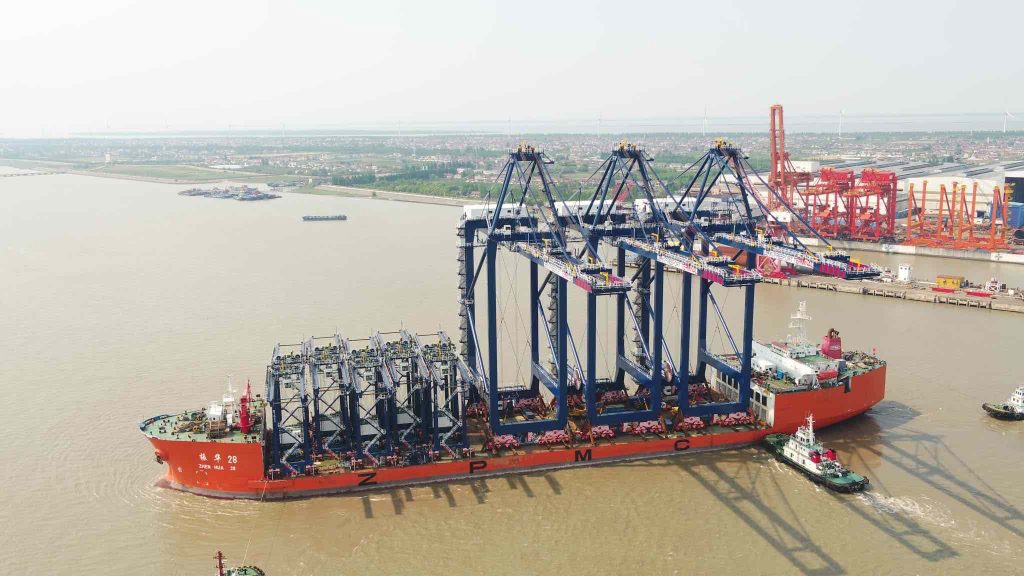
Nigeria targets maritime economy with seaport projects
Nigeria has approved seaport development projects in three states of the country’s southern region as part of push to expand port infrastructure and services that will boost revenue in Africa’s biggest economy. The Federal Executive Council’s approval will allow the development of the Ondo Multi-purpose Port in Ilaje, Ondo State; the expansion of Snake Island Terminal in Lagos State; and the expansion and development of Burutu Seaport in Delta State; all through public-private partnerships (PPP). By 2030, Africa’s Blue Economy, a key priority area of the African Union’s Agenda 2063, is estimated to grow to $405 billion, generating 57 million jobs, according to the African Union. For Nigeria, the development of seaports projects could strengthen its position as a major hub and gateway within Africa’s growing maritime economy. As the Nigeria Ports Authority confirmed the approval of seaport projects in the states of Ondo, Lagos and Delta, the Authority provided insights into what it means for Nigeria and development partners. Ondo Deep Sea Project The Ondo State Government, along with its partners, incorporated the Special Purpose Vehicle (SPV) Port of Ondo Development Limited to design, finance, operate, maintain, and transfer the Ondo Multi-Purpose Deep Sea Port at a total project cost of $1.48 billion. It’ll be fully funded by the proponent for a concession period of 50 years. Projected revenues accruing to the Federal Government are expected run into $50 billion in royalties and other fees in marine services, while the proponent is expected to receive USD $2.6 billion in profits throughout the concession tenor. The Ondo Deep Sea Project will be developed in two phases. Snake Island Port According to the Nigeria Ports Authority, this project would expand the existing port facility from the current single berth to 4 terminals with 3 km of quay, 7 ship berths, and 11 barge berths, with 6 to 13.5 meters of the draft on a total area of 90 hectares. It would comprise container, bulk, and multipurpose (general cargo/RoRo) terminals. The Snake Island Port facility, located within the Snake Island Integrated Free Zone (SIIFZ), would be expanded at a total cost of $974.1 million for a concession period of 45 years. Projected revenues accruing to the Federal Government stand at $18 billion in royalties and marine services, while the proponent is expected to receive $5.23 billion in profits throughout the concession tenor. Burutu Port Project The Burutu Port project in Delta State, proposed by Messrs. Akewa Colmar Services Ltd., has been conceptualized as a mining, inland transportation, logistics base, operating as a transshipment hub for the provision of other port services in western and central Africa. As part of the project, the old port at Burutu will undergo rehabilitation while a greenfield port, proposed for Agge in Delta State, would be developed. The project is estimated to cost $1.2 billion for a concession period of 40 years. Projected revenues accruing to the Federal Government stand at $125 billion in royalties and marine services, while the proponent is expected to earn $9 billion in profits throughout the concession tenor. The project will be developed in three phases. Revamping ports infrastructure for growth and development “These projects are the results of the Federal Government’s drive, through the Federal Ministry of Transportation (FMT) and the Nigerian Ports Authority (NPA), to improve port services, increase revenues, and take pressure off the existing ports and critical infrastructure,” the NPA said in a statement, adding the Infrastructure Concession Regulatory Commission (ICRC) have issued Certificates of Compliance to the port projects. Many of Nigeria’s existing seaports, inherited from the colonial administration, have struggled to function efficiently over the years. But the country is ramping up investments to reverse the trend. At the beginning of this year, Nigeria commissioned the Lekki Deep Seaport, next to the Dangote Refinery, on the east of Lagos. The port, which is the largest in Nigeria, is expected to end cargo congestion in Lagos and cut waiting times offshore.
Read more »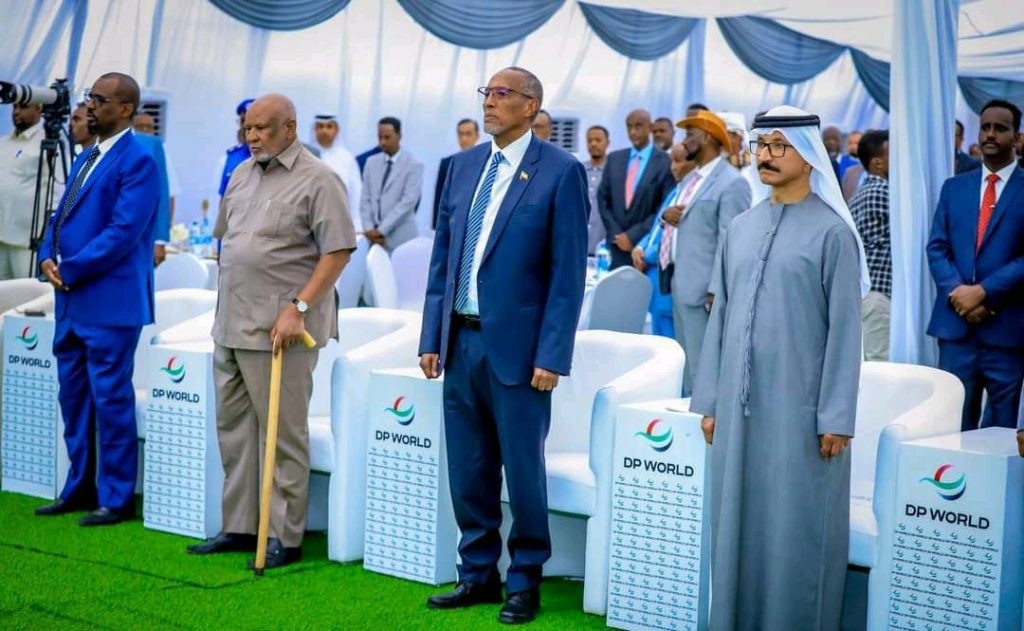
DP World and Somaliland Government open new Berbera Economic Zone
Dubai’s DP World and the Government of Somaliland have inaugurated this week the first phase of the new Berbera Economic Zone (BEZ) located next to Port of Berbera where a container terminal opened in June 2021. The BEZ is located along the Berbera Corridor that connects Ethiopia’s capital Addis Ababa and has access to a rapidly growing region with a population of over 140 million people. Its initial phase notably offers 10,000 square metres of pre-built warehouses, build-to-suit facilities, open yard storage, and a common user warehouse. “DP World has already signed an agreement with IFFCO, a major UAE-based food company, to develop a 300,000 square feet edible oil packing plant in the BEZ and a dozen more companies operating across various sectors have already registered,” DP World said in a statement. The event was also attended by British International Investment (BII), which partnered with DP World in 2021 to invest $1bn into the African ports of Dakar (Senegal), Sokhna (Egypt) and Berbera (Somaliland). The United Arab Emirates has become a significant investor into Somaliland’s infrastructure. At the end of 2021, Dubai-based Transport Infrastructure Services Limited (TISL) notably completed the renovation of the Berbera International Airport.
Read more »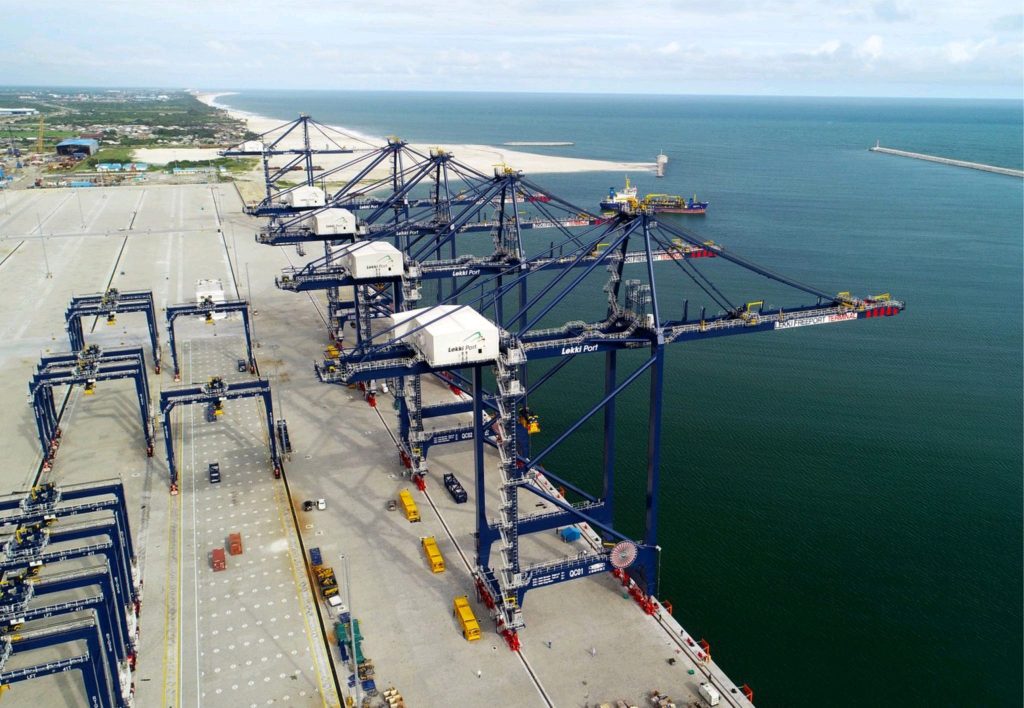
Nigeria’s new Lekki port has doubled cargo capacity, but must not repeat previous failures
Three-quarters of the world is covered by water and up to 90% of world trade is seaborne. Seaports and shipping are critical to the conduct of global trade. Africa has relatively few natural harbours that offer shelter and are deep enough to take big vessels. Along the Atlantic coastline of West Africa, for instance, natural harbours exist only at Freetown and Lagos. Consequently, artificial ports have been carved out of lagoon and river ports, which dot the coastline from Morocco to South Africa. Considerable capital and engineering know-how have been applied since the late nineteenth century to make African ports accessible to ocean shipping. Since the 1990s, African countries have engaged in a “ports race” to emerge as the shipping hub for their region. In this context, the recent completion of the US$1.5 billion Lekki Deep Sea Port in Lagos, Nigeria, is significant. Lekki is one of Africa’s top six ports. It is Nigeria’s first fully automated port, and its largest. It has more than doubled the capacity of Lagos’ ports, which had remained the same for 25 years. It will accommodate the world’s largest cargo ships and is expected to reduce cargo wait times from over 50 days to two days. Its modernity and efficiency are projected to make Nigeria a regional hub and boost the country’s GDP. It is envisaged to generate 170,000 direct and indirect jobs, billions of dollars in tax revenues for Lagos State and the host community, and a turnover of US$361 billion over the next 45 years. My work on the economic history of African seaports supports the view that the Lekki Deep Sea Port could serve as a pivot of local and regional development. The project should have multiplier effects on commerce, industry, agriculture and small-scale enterprises connected to it by various modes of transport. A combination of factors will determine its success. These include its capacity to meet the demands of shipping; its efficiency and competitiveness in the national and international contexts; the coordination of policies; the way transport modes work together; the state of the inland economies; and the application of technology. Nigeria’s port history In colonial Nigeria, significant port development took place between 1850 and 1950 for the economic benefit of Britain. Shipping was concentrated at a few ports during the world wars and the Great Depression (1929-33). But increasing imports and exports in prosperous times required more functioning ports to cope with the greater volume of trade. Lagos and Port Harcourt gained prominence because they had railway links to the hinterland. Port Harcourt was created as an outlet for the coal exports from Udi, near Enugu in eastern Nigeria, and the tin exports of the Jos Plateau. Lagos had become the leading port in West Africa following extensive harbour works between 1892 and 1914 when it welcomed its first ocean liner. It handled the bulk of Nigeria’s foreign trade right into the independence period. The civil war of 1967-70 compelled the adoption of a policy of port concentration at Lagos. Port congestion at Lagos was aggravated by the demands of post-war reconstruction. Massive oil revenues, following the 1973 Arab-Israeli conflict, funded massive imports. Poor planning saddled Nigerian ports with an armada of cement-laden ships in the late 1970s. The congestion imposed huge demurrage costs on the country. And containerisation, which existing seaports were unsuited to handle, made it necessary to expand Apapa Port and create the Tin Can port in Lagos in 1977. During the 1980s and 1990s, the growth of the national economy outstripped the installed capacity of Nigerian ports. At the same time, Nigerian ports attained increasing notoriety for inefficiency, decaying infrastructure, uncompetitive tariffs and systemic corruption. Other West African ports offered better services – so traffic went there instead. The Nigerian government eventually in 2005 adopted the landlord model of port administration: state control was replaced by a system of concessions. This improved port services, but did not bridge the gap between capacity and volume of container traffic. Thus the idea of the Lekki Deep Sea Port was conceived. Lekki port’s potential Lekki is expected to generate direct and induced business revenue estimated at US$158 billion, a qualitative impact on the manufacturing, commercial and services sectors, and a multiplier effect over 230 times the cost of construction. It will attract a massive influx of people, businesses and investment. The new facility will support the industrial and petrochemical complex, including the Dangote Refinery, the largest in the world, situated in the Lekki Free Trade Zone. It is poised to attract investment in the range of US$20 billion in the first few years. With an airport in the vicinity, the port will be a component of a Harbour City equipped with logistics infrastructure of various kinds. Lekki port should reduce congestion at the older ports in Lagos and help recover the lost traffic of landlocked Chad and Niger, which had been diverted to more efficient ports in the sub-region. The port also positions Nigeria to optimise the African Continental Free Trade Agreement. Weak Points However, it appears that the project suffered from some lapses in planning. Provision for cargo evacuation by rail is non-existent, and the road infrastructure is inadequate for the anticipated volume of traffic. The other challenge is the encroachment on land around the Lekki port and the future problem of congestion. Unless the state government takes drastic action under the Land Use Act to acquire land in the public interest for the future expansion of the port, it will be a repeat of the problems of older ports hemmed in by unplanned industrial, urban and commercial land use. The project indicates that public-private sector partnership is the best way to plan and deliver landmark infrastructure projects. Lekki Port LFTZ Enterprise Ltd was created for the purpose, with investment by China Harbour Engineering Company Ltd, Singapore’s Tolaram Group and the Nigerian government. But it has the potential drawback of idle capacity if the economic prospects that motivated it fail to materialise. Then the huge investment in the deep sea port project would become a huge burden of unpaid debts. This article is republished from The Conversation under a Creative Commons license. Read the original article.
Read more »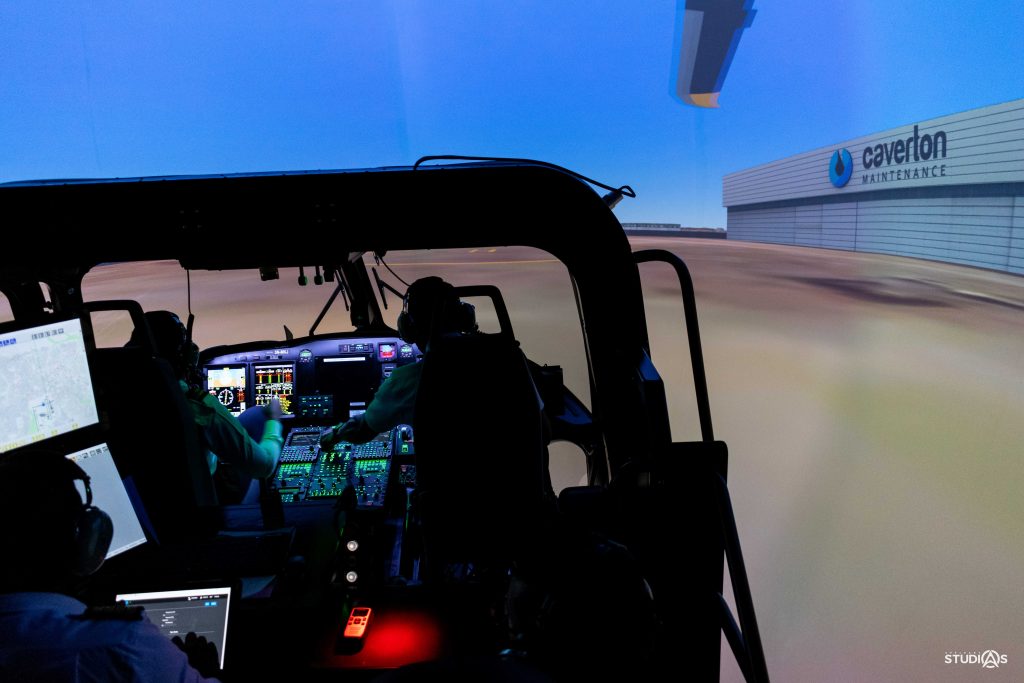
Caverton adds second simulator to Africa’s leading aviation training center
The Caverton Offshore Support Group (COSG) Plc will install, operate, and maintain an AW109 FNPT II MCC simulator purchased by Global Aviation Training & Maintenance (GATML) at its aviation training center in Lagos. The new simulator is equipped with a spherical visual system, 4 axis electromagnetic vibration system and an Entrol Mission Package, which includes hoist control for SAR mission and an external mirror, among other equipment. It will be available at the Caverton Aviation Training Center (CATC) in Lagos, which already operates an EASA-certified Level D AW139 full flight simulator, Africa’s first level D helicopter simulator. With this second simulator, the Caverton Aviation Training Center (CATC) will improve its range of training devices while reducing operational costs and increasing the safety of its clients’ pilots. “We are excited to introduce this Entrol AW109 FNPT II to our growing number of training devices in Nigeria and West Africa as a whole. The advent of Covid 19 opened our eyes to the fact that there is a huge void in training establishments and particularly access to training simulators. The need for affordable and accessible training is long overdue in West Africa and we are delighted to work with Entrol in making this a reality,” said Mrs. Lolade Abiola, accountable manager at the Caverton Aviation Training Center (CATC).
Read more »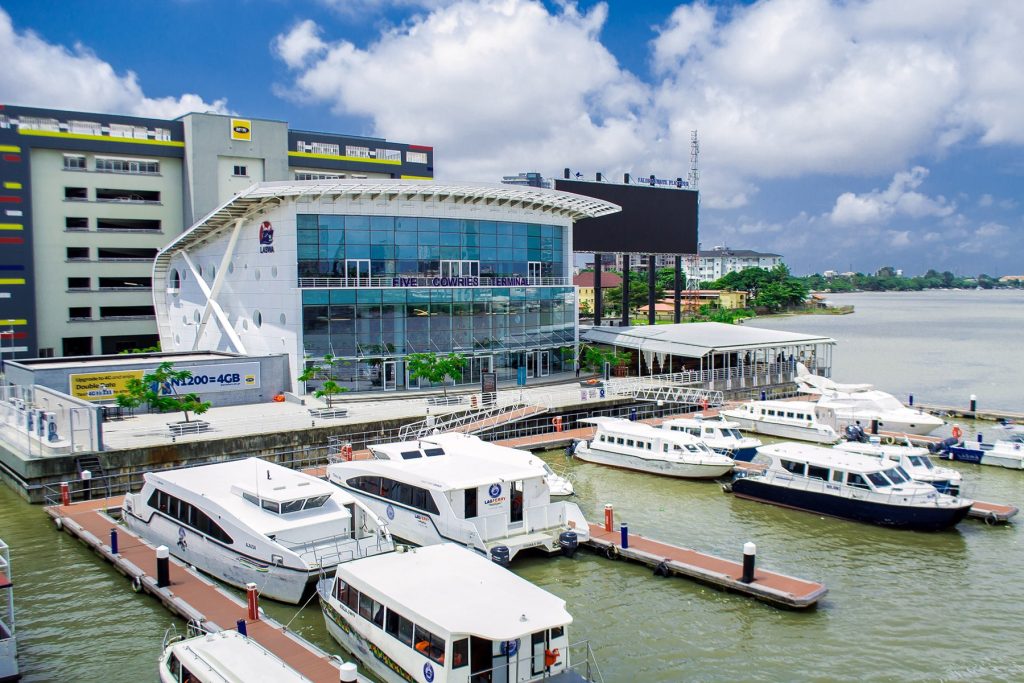
French development agency to finance development of Lagos’ waterways
The French development agency, AFD, has declared it would support the Lagos State Government and its waterways authority, LASWA, to develop a mass public inland waterways transportation system in Africa’s largest megacity. Known as the Waterways Investment and Development of the Environment project in Lagos State (WIDE-LAG), the €200m scheme targets the moving of over 50m passengers every year through Lagos’ waterways by 2028. The project’s scope involves the development of five to eight priority ferry routes including ferry terminals, first mile/last mile land connections, jetties, pontoons, shipyard for vessel maintenance and dredging of critical areas. It will also include the acquisition of clean-powered vessels, Information Transport Systems (ITS), capacity-building and institutional strengthening of LASWA. “This ambitious program will put Lagos State at the forefront of mobility innovation in Africa, setting the path for other western African countries sharing the same geographical configuration,” said Antoine Le Bihan, the AFD Representative in Lagos. The project’s preparatory studies were officially launched last week in Lagos, under a €1.2m grant provided by the AFD.
Read more »
Angolan Government awards concession tender for critical Lobito Corridor railway
The Angolan Transport Ministry has awarded the 30-year concession for rail services and logistics support over the Lobito Corridor to the consortium of Trafigura (49.5%), Mota-Engil (49.5%), and Vecturis (1%). The Lobito Corridor is a key route that connects mines in the D.R. Congo to the Lobito Port in central Angola, from where commodities can be exported to global markets. Until now, exporting Congo’s copper, cobalt and metals required several weeks by connecting to Dar es Salaam in Tanzania, Beira in Mozambique, or as far as Durban in South Africa. The concession follows a competitive tender and can be extended by another 20 years after its initial period. “With increased dynamics in the transportation of minerals and other materials in the coming years and improved competitiveness of the rail system, it is expected that the Lobito Corridor could become the 3rd most important corridor in the SADC region by 2050,” Trafigura said in response to the award. The private consortium will operate, manage, and maintain the rail infrastructure that links the Port of Lobito to Luau in eastern Angola, next to the DRC border. Key commodities include minerals, liquids, gas, and cargo transport. A significant investment is notably expected into improving the infrastructure and rolling stock for freight operations to increase capacity.
Read more »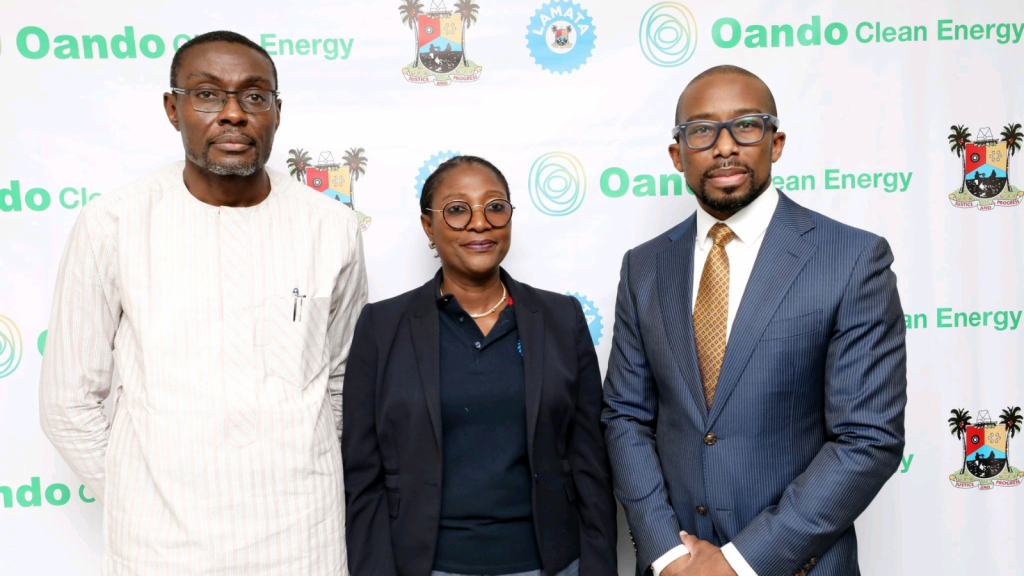
Oando planning electric mass transit ecosystem in Lagos
In April this year, Nigerian energy company Oando signed a Memorandum of Understanding (Mou) with the Lagos Metropolitan Area Transport Authority (LAMATA) for the rollout of an electric mass transit ecosystem in Africa’s largest megacity. The MoU was signed with Oando Energy Resources’ subsidiary Oando Clean Energy Ltd (OCEL). The ecosystem seeks to support electric vehicles and provide the supporting charging infrastructure and service centres for their operations. “In the immediate to medium term, we will support Lagos State in bridging the public transportation gap, commence the gradual decarbonisation of the transport sector, and in the long term, support the State in achieving optimised operational efficiency and availability of service to Lagosians,” said Ainojie Alexander Irune, COO at Oando Energy Resources. LAMATA and OCEL intend to form a public-private partnership (PPP) that will support the development of a sustainable road transport system in Lagos. Along with rapid urbanization and population growth, the state is faced with increasing challenges related to its infrastructural capacity.
Read more »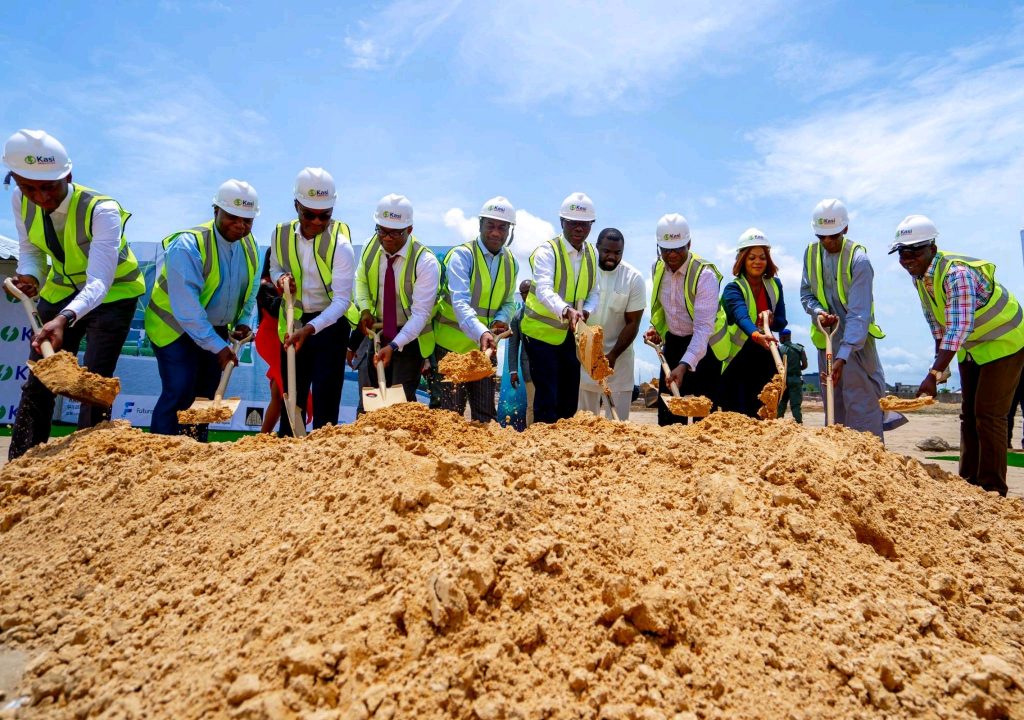
Nigeria: Kasi Cloud has broken ground on new $250m data center in Lekki
Yesterday, Lagos Governor Babajide Sanwo-Olu performed the groundbreaking ceremony at the Kasi Cloud Data Center in Lekki II. The $250m project is located at Leisure Land along the Maiyegun- Lekki Beach Road. It is being built over 4ha and will ultimately provide interconnection and data center services to West Africa’s fastest-growing city and commercial hub. Lagos’ digital infrastructure is witnessing significant expansion with several data centers already commissioned or currently being built. Just two weeks ago, Governor Sanwo-Olu had also inaugurated the MDXi Lekki II Data Center of MainOne, an Equinix company.
Read more »
MDXi Data Center has launched Lekki II Data Center expansion
Last week, MainOne further expanded its digital footprint in West Africa by launching its MDXi Lekki II Data Center. The expansion of the MDXi Lekki center by Lagos Governor Babajide Sanwo-Olu notably followed the completion of MainOne’s acquisition by Equinix on April 5th. As a result, MainOne is now an Equinix company. Our plans include further expansion to the Lekki Campus to accommodate the requirements of global hyperscalers and regional businesses as we expand to connect the over 10,000 companies already on the Equinix platform. Funke Opeke, CEO, MainOne.
Read more »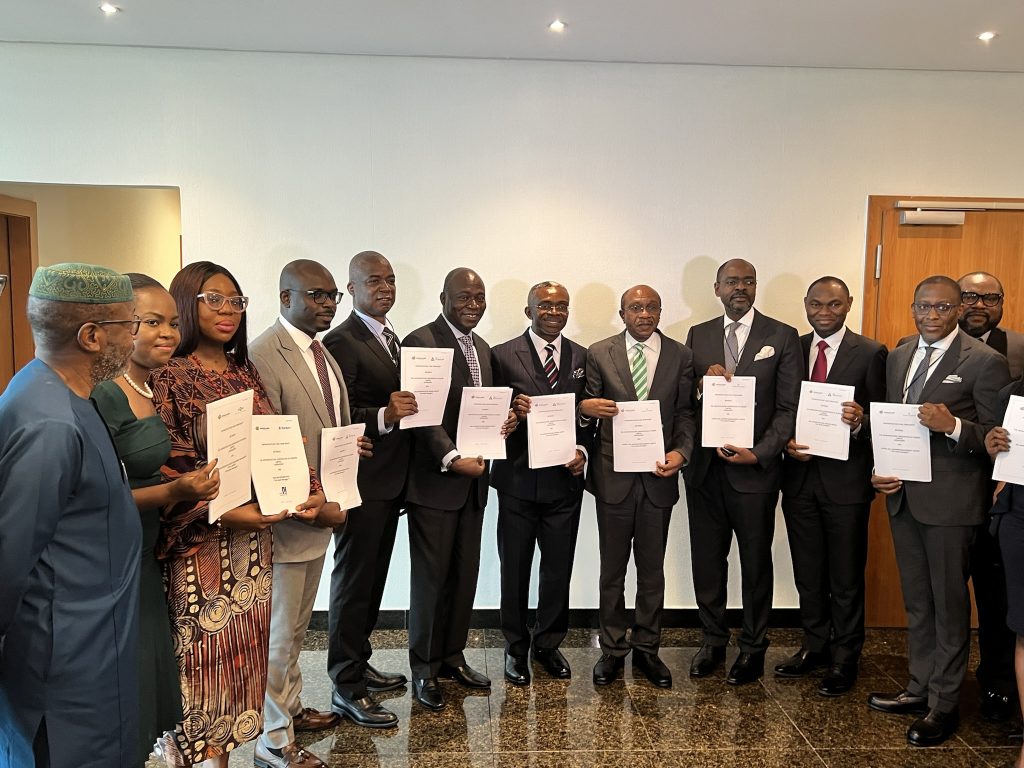
Nigeria’s new Infrastructure Corporation opens for business
On April 8th, term sheets were signed between the Infrastructure Corporation of Nigeria (InfraCorp) and four independent infrastructure asset managers: Sanlam InfraWorks, Africa Infrastructure Investment Managers (AIIM), the AAA Infrastructure Nigeria consortium (comprising of Afrinvest, Africa Plus Partners, and ARC Asset Management), and Chapel Hill Denham. InfraCorp is a new privately-managed investment, infrastructure and industrial vehicle promoted by the Central Bank of Nigeria (CBN), the Africa Finance Corporation (AFC) and the Nigerian Sovereign Investment Authority (NSIA). Last year, President Muhammadu Buhari had already cleared the way for the launch of InfraCorp by approving its initial seed capital of NGN 1 tn ($2.4 bn). CBN Governor Godwin Emefiele expressed confidence that a substantial portion of the NGN 15 tn ($35 bn) funding required for the first phase of the execution of InfraCorp was available locally. The asset managers are responsible for originating, structuring, executing, and managing end-to-end bankable infrastructure projects in Nigeria.
Read more »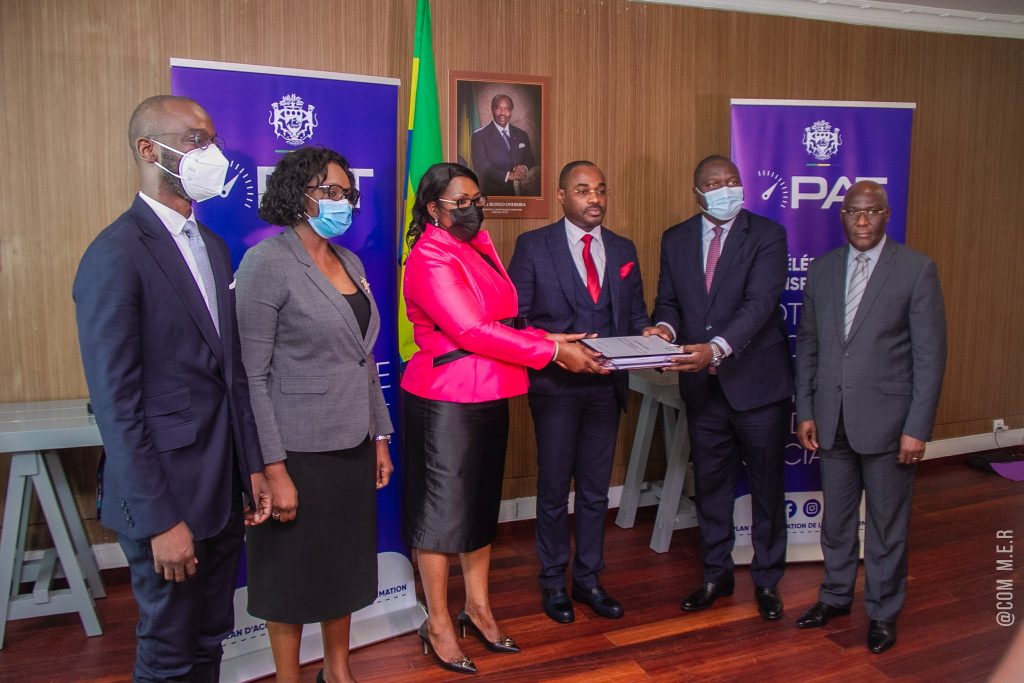
Gabon considers new 340Km railway line between Owendo and Booué
Earlier this week, the Government of Gabon signed a contract with INPEX SA, subsidiary of RISE Gabon, to carry out necessary studies on the planned 340km Komo-Ogooue Railway (KOR) project. RISE Gabon is an investment vehicle dedicated to financing the country’s infrastructure and was born out of a partnership with the Islamic Development Bank in 2020. The new railway line would link Owendo in Libreville to Booué in Central Gabon. It is part of the country’s efforts to expand its logistic network and support the diversification of its economy. Under a 30-year concession, Gabon is already financing and upgrading its strategic 650km Transgabonaise railway line that connects Owendo to Franceville. Since 2015, the Transgabonaise railway has notably been subject to a €509m modernization, renovation and upgrade programme (the “PRN”) to restore its initial capacity by 2024. In 2021, an additional CAPEX of €197m was agreed upon (“PRN2”) to further increase the capacity of the line to reach a total of 19 m MT by 2027.
Read more »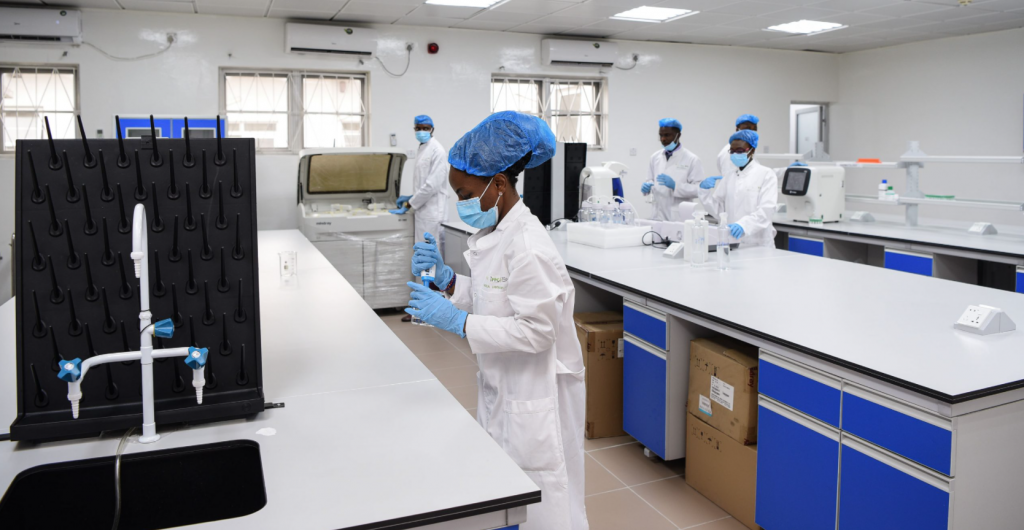
Nigerian independent launches new medical diagnostics laboratory in Delta State
ND Western, a member of the Independent Petroleum Producers Group (IPPG) of Nigeria, and the state-owned Nigerian Petroleum Development Company, have officially commissioned a new world-class laboratory in Delta State yesterday. The Delta Plus Diagnostics facility was completed earlier this year in Ogunu and provides a world-class, fully equipped, molecular laboratory offering Covid-19 and blood testing services to hospitals, health management organisations (HMOs), corporations and individuals. The project is the result of a successful and strategic partnership between ND Western, Nigerian think tank Bloom Public Health and Nigerian provider of laboratory equipment Katchey Laboratories. “This partnership is an outstanding model in health financing, and one to be emulated by other stakeholders in Nigeria’s public health sector,” said Bloom Public Health. Delta Plus Diagnostics is accredited by the Nigeria Centre for Disease Control (NCDC) and now serves the South-South region of Nigeria with critical medical diagnostics services, thereby reducing the need to travel long distances.
Read more »Africa50 completes a growth equity investment in PAIX Data Centres
Africa50 has just completed an equity investment of $20m into PAIX Data Centres, forming the first tranche of PAIX’s Series B financing by Africa 50. The funds will be used to expand PAIX’s data centre capacity and its growth plans into new African markets. PAIX currently operates one data centre in Accra and one in Nairobi. Africa50 is the company’s first institutional investor and will be supporting the company’s expansion of its world class cloud-and-carrier-neutral data centres across the continent.
Read more »AXIAN Telecom makes successful debut on debt capital markets
AXIAN Telecom, the pan-African provider of telecommunications, mobile money services and digital infrastructure, has successfully priced its $420m senior notes due in 2027. The company raised capital to finance the repayment of some of its existing debt and support its overall growth across the continent. Since 2004, AXIAN Telecom has expanded into Tanzania, Madagascar, Togo, Mauritius and Uganda, and has joint ventures in Senegal, Réunion-Mayotte, and Comoros. The bond was launched on February 9th and was supposed by anchor orders from major development finance institutions (DFIs) such as the CDC Group of the UK, the DEG of Germany, the International Finance Corporation (IFC), but also the Emerging Africa Infrastructure Fund (EAIF). The bond was priced at 7.375% and the order book ended up being 2.2x oversubscribed, with half of the investors coming from the United States.
Read more »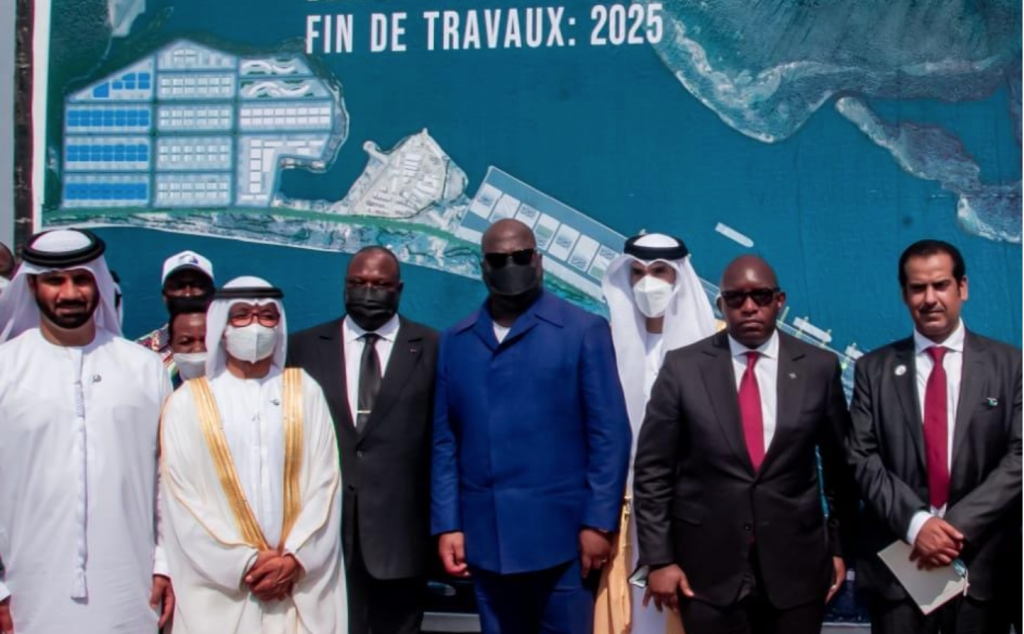
Official start of construction at the D.R. Congo’s flagship deep-water port
DP World and the Government of the Democratic Republic of the Congo (DRC) have officially laid the first stone of the new Banana Port today. The ceremony was attended by His Excellency, Félix-Antoine Tshisekedi, President of the DRC, and Sultan Ahmed bin Sulayem, Group Chairman and CEO of DP World, as well as members of the DRC Government, public representatives and members of the local community. In December, both entities had already signed the Collaboration Agreement for the project’s development. The construction of a deep-water port at Banana has been in the making since 2018 when the initial contract was signed. “DP World will develop an initial 600-meter quay with an 18m draft, capable of handling the largest vessels in operation. It will have a container handling capacity of about 450 000 TEUs (20-foot equivalent units) per year, and a 30-hectare yard to store containers,” DP World said at the end of 2021.
Read more »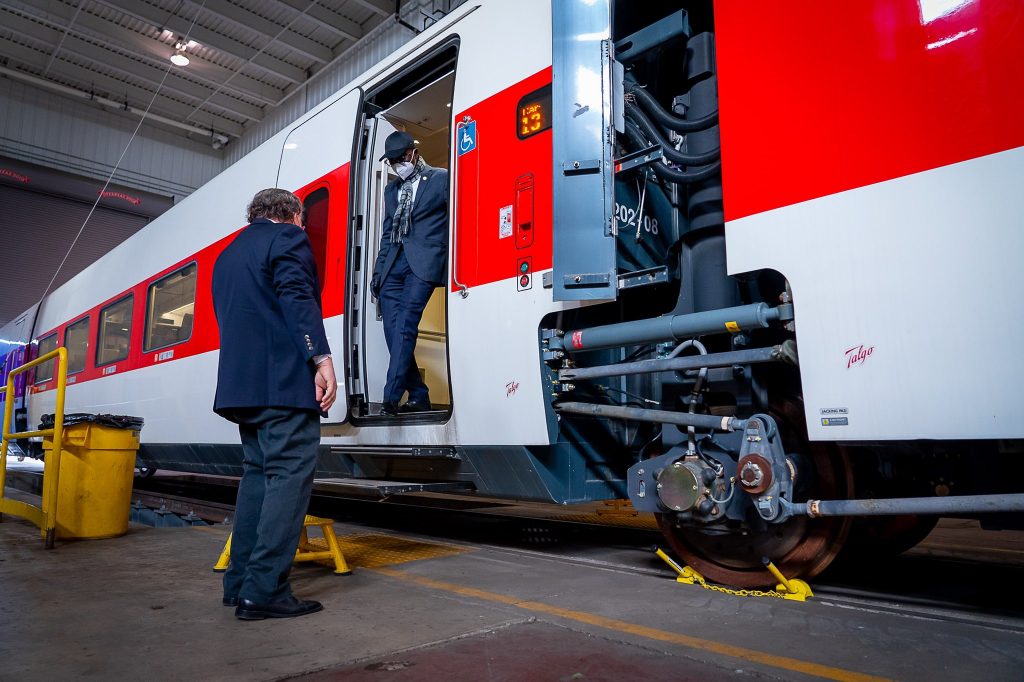
Lagos State issues pre-qualification notice for the concession of the Lagos Blue Line Rail Project
On Wednesday this week, the Lagos Metropolitan Area Transport Authority (LAMATA) issued a request for application for the pre-qualification of the concession of the Lagos Blue Line Rail Project, which will run from Marina to Okokomaiko. The line is part of the broader Lagos Rail Mass Transit (LRMT) network currently being developed under the Lagos Strategic Transport Master Plan. The development of the master plan was supported and funded by the World-Bank and notably identified 14 Bus Rapid Transit (BRT) corridors, six rail lines and one monorail. While Lagos started with the construction of the bus rapid transit corridors, two of which are already operational, the state is now building two rail lines, known as the Blue and Red ones. The Blue Line counts 13 stations and will run on a 27km East-West axis from Badagry to Marina on Lagos Island. The Red Line will run on a 37km North-South axis from Agbado to Marina and is under-construction after breaking ground in 2021. The Blue Line will be the first to be operational but the project has been split into two phases to ease its development. The first phase is a 12.5km stretch from Mile 2 to Marina that will start operating at the end of 2022 and will function as a proof-of-concept for Lagos’ future metro system. The second phase consists in doing the rail works on the remaining 14.5km stretch. It is for this second phase that the Lagos State Government is now seeking reputable and experienced railway developers, EPC contractors, rolling stock and equipment manufacturers, operators, and financiers. “These service providers will be expected to form Consortia comprising of all the required service providers, and should provide technical, operational and financial capabilities to enhance their qualification,” LAMATA said in its notice. Applications and expressions of interest must be submitted to KPMG by March 2nd, 2022.
Read more »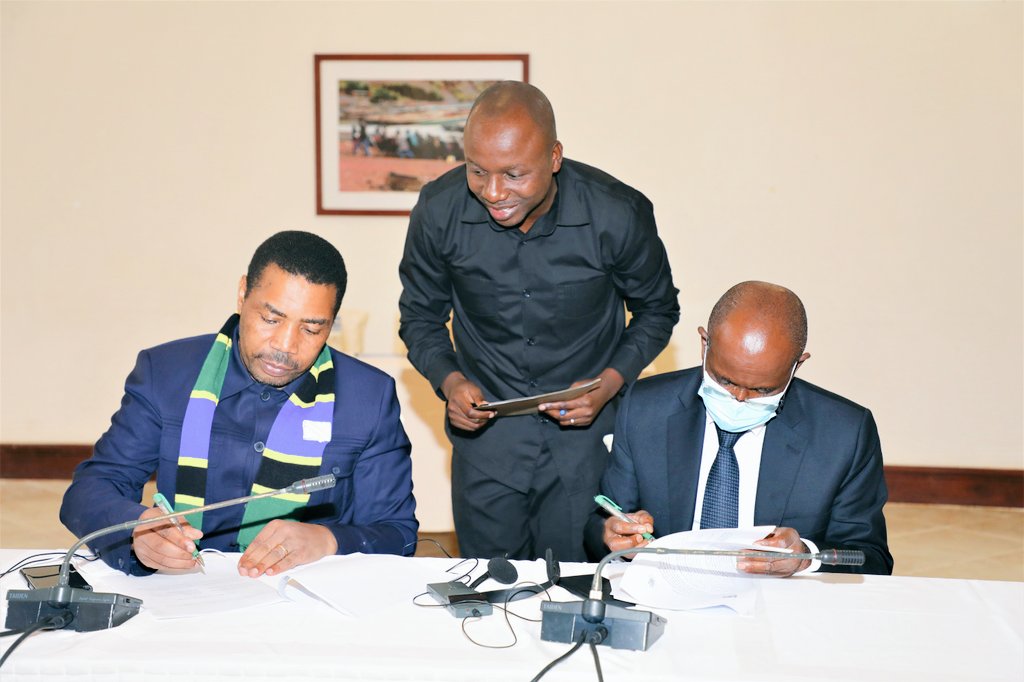
Tanzania and Burundi want to boost trade with a new railway link
On Sunday, the East African nations of Tanzania and Burundi signed an agreement seeking to build a $900m railway that would connect them both and boost trade. The Memorandum of Understanding (MoU) signed in Kigoma paves the way for the construction of a 282km line from Uvinza in western Tanzania to Burundi’s capital Gitega. It was inked by both countries’ finance and transport ministers. The two governments will jointly seek financing for the railway, Tanzania Finance Minister Mwigulu Nchemba said. Tanzania is increasingly sourcing capital to expand its railway network and become a trade hub for the sub-region. Last December, it signed a $1.9bn contract with Turkish contractor Yapi Merkezi to build a 368km section of standard gauge railway. The project is part of a 1,219km SGR line that Tanzania is already building to link Dar es Salaam with the port city of Mwanza on the shores of Lake Victoria.
Read more »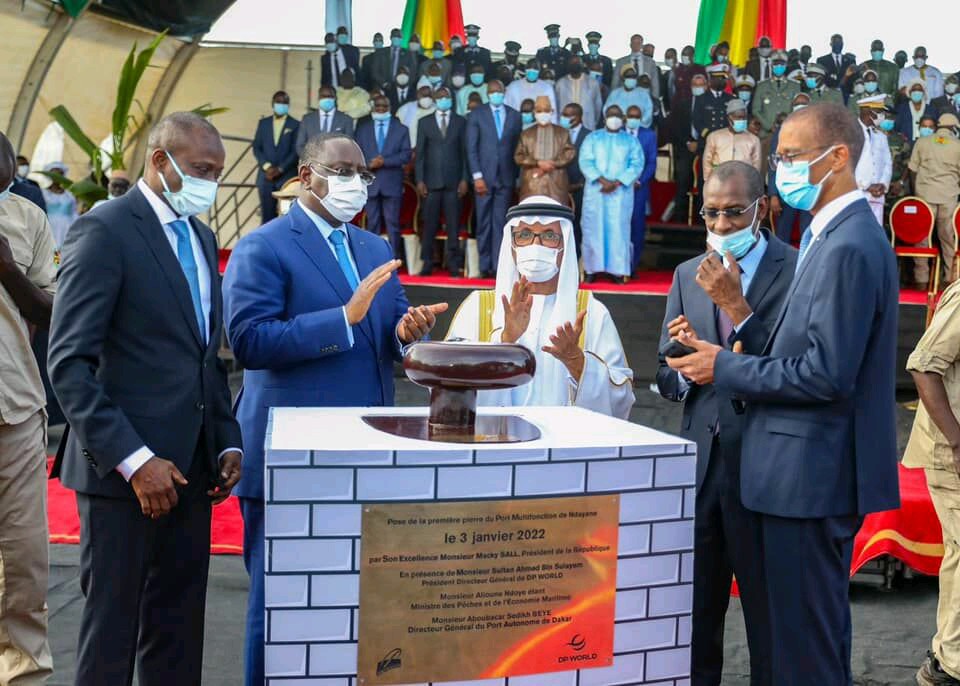
DP World breaks ground at $1.1bn Ndayane deep-water port in Senegal
On Monday this week, Senegalese President Macky Sall laid the foundation stone for the new $1.13bn Ndayane deep-water port, 50km south of Dakar. The project is led by a joint-venture of DP World of Dubai and the Dakar Port Authority and represents so far the biggest private investment in Senegal. According to DP World, the first phase will include 840 metres of quay and a 5 km marine channel designed to handle 366-metre vessels, with a second phase adding 410 metres of container quay and further dredging to handle 400-metre vessels. The Dubai-based logistics giant will notably develop and operate the 300-hectare container terminal, as well as finance and design the land and maritime infrastructure for the port. In October last year, the UK’s development finance institution and impact investor CDC Group (CDC) announced a partnership with DP World to invest into Africa’s trade and logistics infrastructure. Under this long-term partnership, DP World had notably committed to invest a further $1bn into existing ports in Dakar (Senegal), Sokhna (Egypt) and Berbera (Somaliland).
Read more »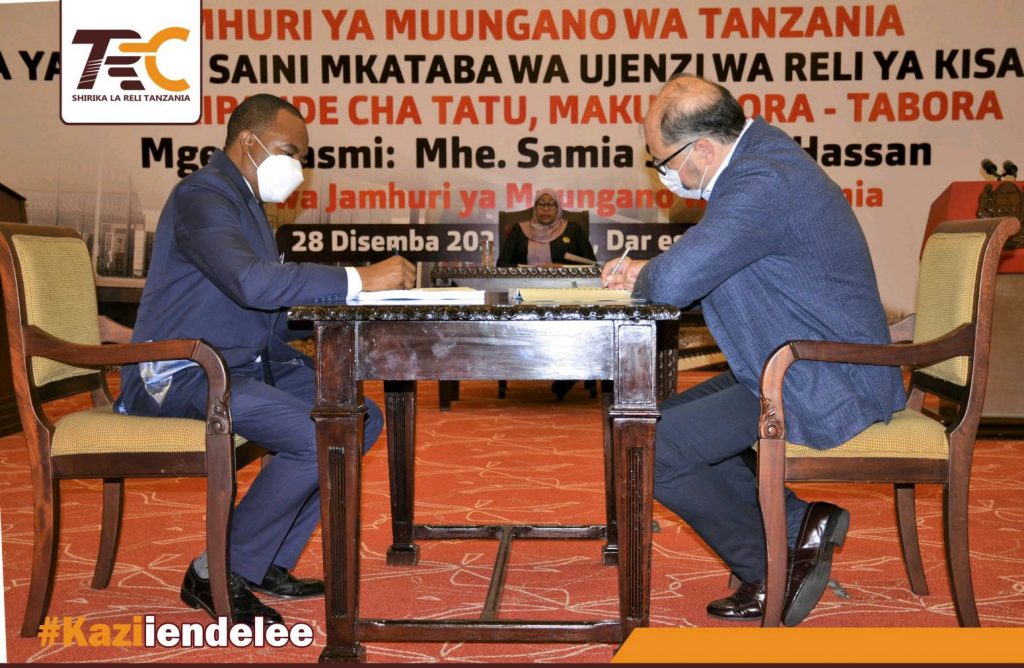
Tanzania selects Turkish contractor to extend its standard gauge railway
Earlier this week, Tanzania signed a $1.9bn contract with Turkish contractor Yapi Merkezi to build a 368km section of standard gauge railway. The project is part of a 1,219km SGR line that Tanzania is building to support regional trade in East Africa by linking Dar es Salaam with the port city of Mwanza on the shores of Lake Victoria. Two similar lines are already nearing completion. Under the contract signed this week, Yapi Merkezi will execute the section linking the towns of Makutopora and Tabora in Tanzania’s Masanja Kadogosa region.
Read more »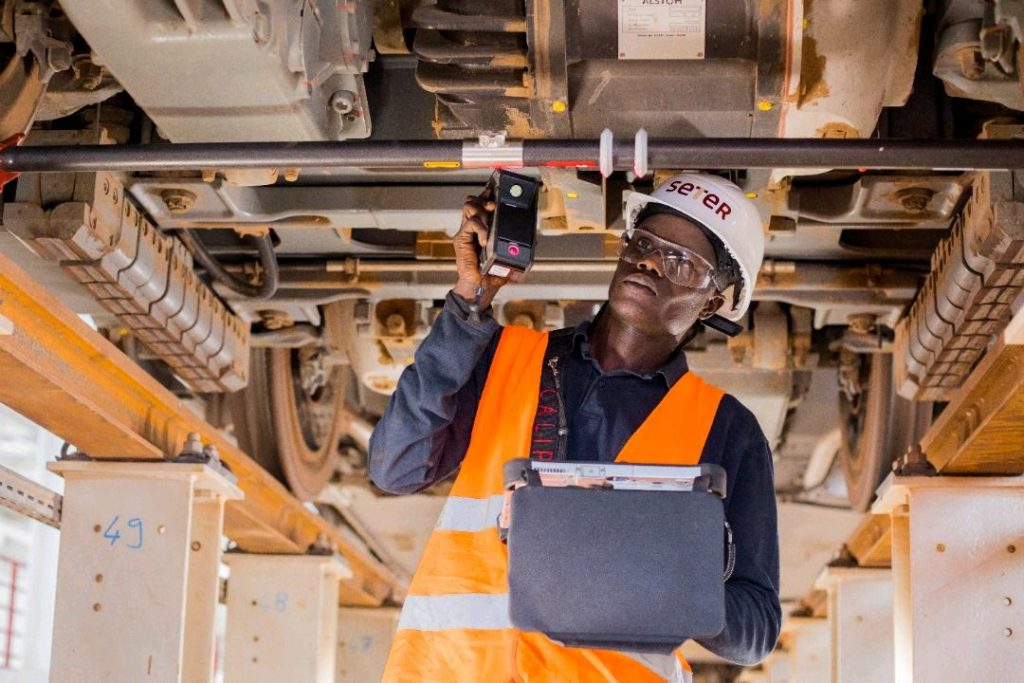
Dakar gets brand new “TER”, France’s renowned train and coach service
Just after Christmas, President Macky Sall of Senegal inaugurated the long-delayed railway line linking Dakar to the new city of Diamniadio. The new service can transport over 100,000 people across the 36km between Dakar and Diamniadio, and currently counts 14 stations. It will ultimately link Dakar to the Blaise-Diagne International Airport (AIBD) in less than 1h. The €1bn project is a cornerstone of Macky Sall’s infrastructure development strategy and is seen as critical to decongest Dakar’s peninsula. The service is called “Train Express Regional”, or TER, after the commercial brand of France’s railway company SNCF. It is the first such train to operate in Africa. France’s participation via the SNCF and the RATP had been announced by President Macky Sall back in 2016. A Framework Agreement had eventually been signed covering the operations & maintenance of the TER by both French companies. The new operating company, called SETER, counts SNCF’s subsidiary Keolis and RATP’s subsidiary RATP Dev. as shareholders. The project was built by a consortium of Eiffage of France, Yapi Merkezi of Turkey and Senegal’s Compagnie sahélienne d’entreprises (CSE). Its systems and technology were conceptualized and developed by French companies Engie and Thales and include the ERTMS2, one of the world’s most sophisticated rail traffic management system. The trains themselves were manufactured and delivered by French contractor Alstom.
Read more »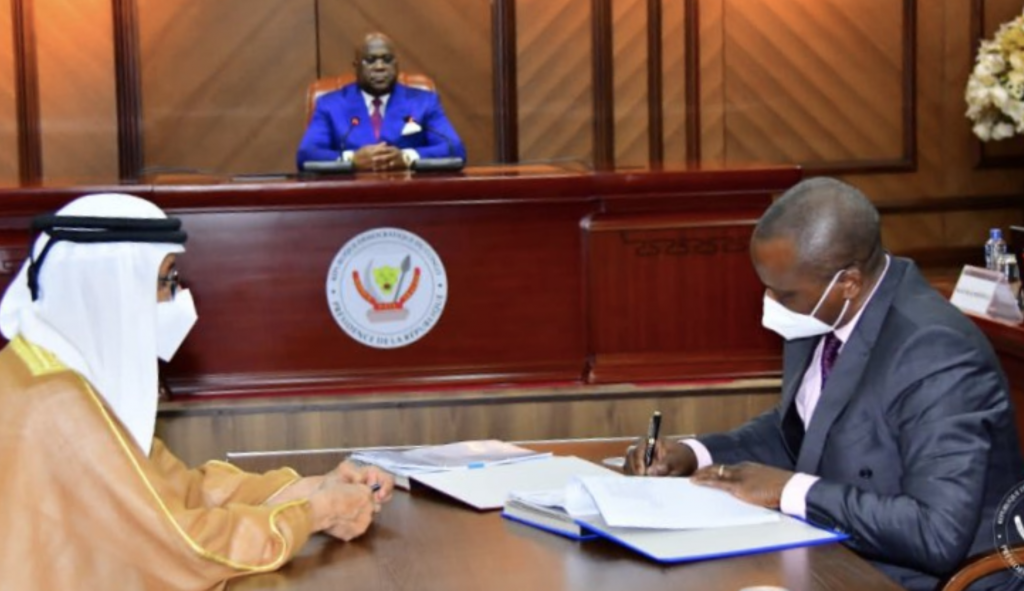
DP World and the Democratic Republic of the Congo sign final agreement to develop Banana Port
On Monday this week, DP World and the Government of the Democratic Republic of the Congo (DRC) have signed the Collaboration Agreement for the development of the Banana deep-sea port. The agreement was signed in the presence of President Tshisekedi and follows the sgning of a term sheet earlier this year with DP World. The project has been in the making since 2018 when the initial contract was signed. The Collaboration Agreement signed this week paves the way for a groundbreaking on the project within a year. “DP World will develop an initial 600-meter quay with an 18m draft, capable of handling the largest vessels in operation. It will have a container handling capacity of about 450 000 TEUs (20-foot equivalent units) per year, and a 30-hectare yard to store containers,” DP World said.
Read more »Hive Hydrogen and Linde announce $4.6bn Green Ammonia Plant in South Africa
Hive Hydrogen, Built Africa and Linde’s South African subsidiary Afrox have announced the establishment of a 780,000 ton/year Green Ammonia Plant at the Coega Special Economic Zone alongside the Port of Ngqura in South Africa. The $4.6bn project will be developed two phases and have its own dedicated power supply. The facility will use renewable energy to desalinate water, extract hydrogen and combine it with nitrogen to produce green ammonia. The water will be supplied by Cerebos, Africa’s largest salt products producer. The ammonia will then be cooled, liquefied and stored for export before being dispatched by pipeline from the storage tanks onto ships at the port of Ngqura. In doing so, the partners aim at meeting increasing global demand for ammonia, used by key industries such as agriculture, chemicals and mining but also as a maritime fuel and substitution fuel for coal. The choice of the Coega SEZ as project site also supports South Africa’s industrialization strategy around the Ngqura deep-water port. In November this year, South Africa’s state-owned Central Energy Fund (CEF) issued a request for information (Rfi) for the development of an independently managed midstream LNG hub from the port.
Read more »